Initiation to braille writing
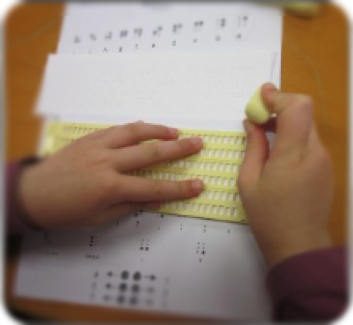
The Initiation to Braille workshop introduces participants to the Braille system, teaches the basics of the alphabet and lets comparisons be made with what has been or will be seen during the museum visit, for example the Braille tablet and Braille typewriter.
This workshop is an opportunity to put visual disability in perspective by showing that a blind person, with some adaptation, can live "like everyone else".
Practical exercises also help explain the fundamentals of Braille and remind participants that Braille is alphabetic writing: one Braille character is one letter.
At the end of the workshop, each child is asked to write his or her first name in Braille.
Pedagogical materials :
● A Braille alphabet with corresponding letters of the “Black" alphabet (which is how we call the basic Latin alphabet)
● A Braille tablet with perforated grid holes
● Sheets of special paper (120 grams)
Sensory workshops
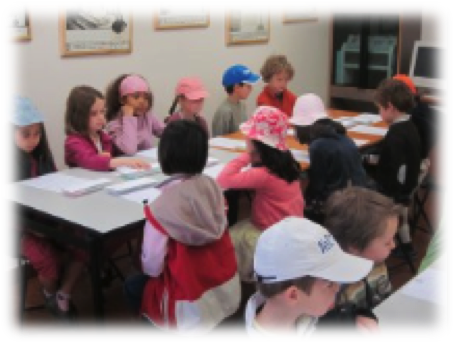
Learning citizenship requires respecting and understanding others. The workshops offer an opportunity for participants to improve their knowledge of people with visual disabilities.
It is important to raise awareness among young people, because it is from the earliest age that prejudices are formed. Working on family and socially transmitted stereotypes at a young age is the best way to eradicate them.
These workshops are designed to help change the way children feel about visual impairment, and thus provide an opportunity to improve tolerance and civic-mindedness, accept differences, and overcome the fear of others in order to nurture an overall sense of solidarity.
Every sense workshop is done blindfolded, thus giving children an understanding of how blind people develop their other senses without sight.
Touch
Children are asked to differentiate between different shapes and materials:
● Aluminum foil and cotton
● Wooden and cardboard shapes (animals, letters, and geometric shapes)
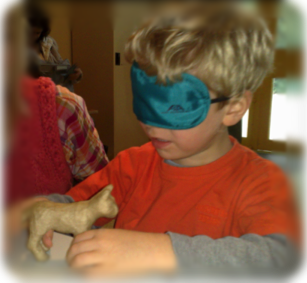
Hearing
Children are asked to recognize the sounds from our recordings, including traffic noises and animal calls.
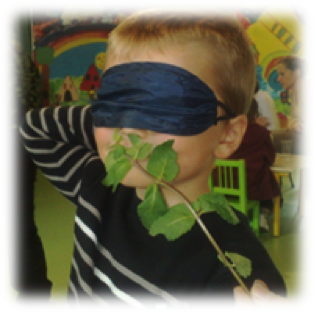
Smell
Children are asked to recognize several distinct smells:
● Mint
● Pepper
● Cinnamon
● as well as certain combinations (mint and chocolate, rose, apple, eucalyptus, etc.)
Blind Tasting Workshops
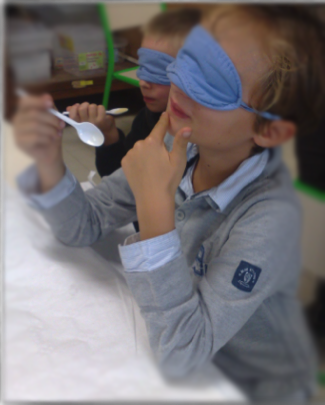
Here, students will be asked to identify various cooking ingredients (liquids or solids) contained in small jars, such as:
● Cocoa powder
● Icing sugar
● Flavored water ...
Please note that the sensory workshops and the blind tasting workshops are mutually complementary. In order to combine education and awareness about visual disability, we recommend that you combine both, in order to link theory and practice.